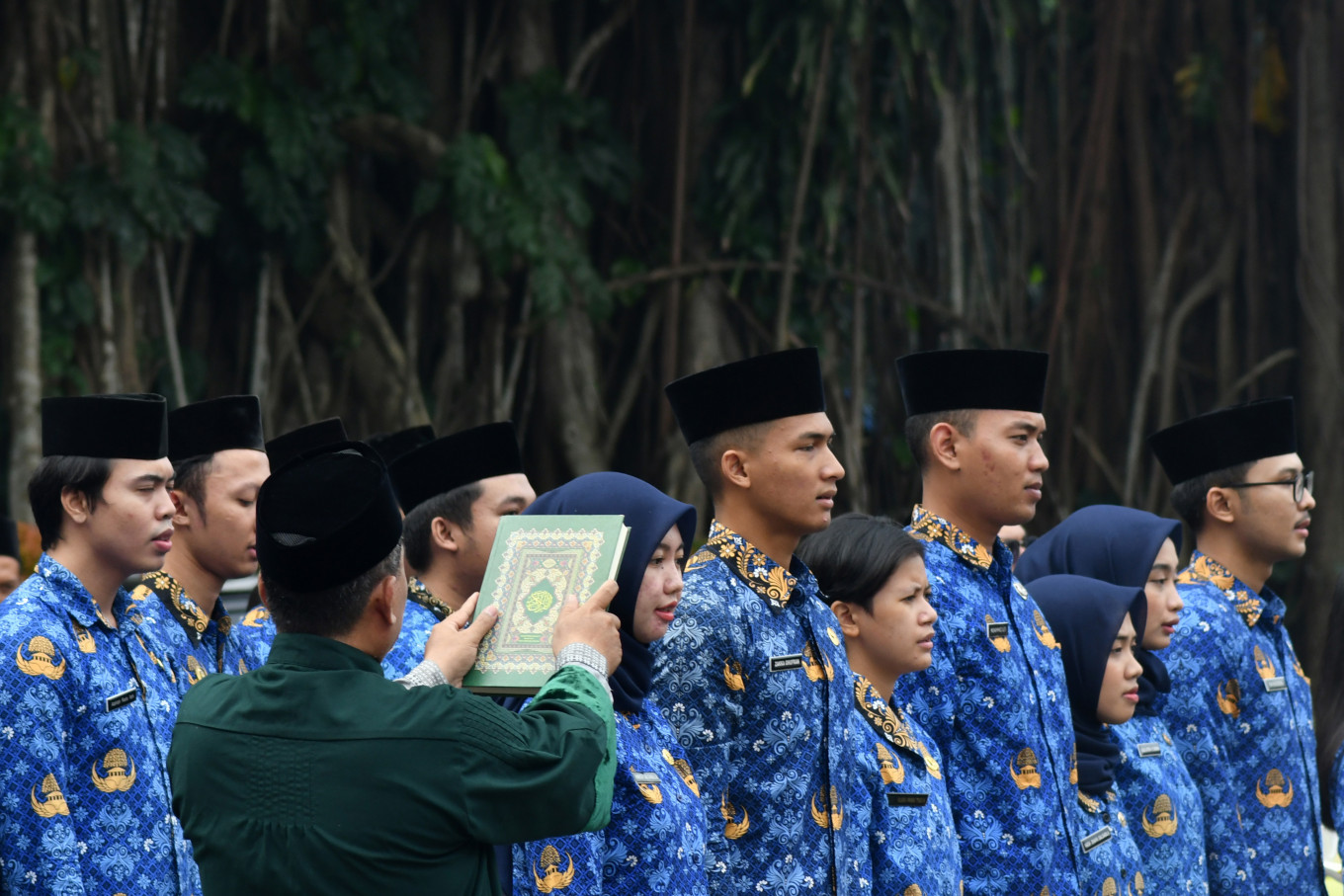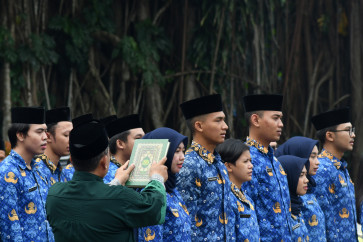Popular Reads
Top Results
Can't find what you're looking for?
View all search resultsPopular Reads
Top Results
Can't find what you're looking for?
View all search resultsPrabowo needs bureaucratic reforms to deliver his economic agenda
The President needs an effective and strong bureaucracy to deliver his campaign pledges.
Change text size
Gift Premium Articles
to Anyone
P
resident Prabowo Subianto has come to the presidency with a heavy load of extensive political and economic agendas aimed at paving the way for achieving 8 percent economic growth within five years.
But to achieve his agenda he needs an effective and strong bureaucracy to deliver his campaign pledges. Strong and effective institutions will be crucial for Prabowo’s presidency to realize his multitudes of economic agendas. In order to ensure the successful implementation of his political and economic agendas during his five year term, it is essential that he continues the reform of government bureaucracy.
The Indonesian bureaucratic reforms have come a long way since the enactment of Law No. 43/1999 on civil service which was then strengthened by a presidential regulation in 2010 on the grand design of bureaucratic reform. The key focus of these reforms includes improving governance, enhancing public service delivery and promoting transparency and accountability.
Over the years, the reforms have evolved and expanded into anti-corruption efforts by digitalizing government processes (e-budgeting, e-procurement) to reduce opportunities for corruption and by establishing the Corruption Eradication Commission (KPK). Significant progress has also been achieved in the digitalization of other public services (licensing, tax administration) to improve efficiency and accessibility. Law No. 5/2014 on state civil apparatus (ASN) mandates that recruitment, promotion and performance evaluation of ASN are based on competence rather than patronage.
However, some ideas and decisions by Prabowo at the start of his presidency have raised questions about whether they are consistent with the trajectory of the Indonesian bureaucratic reforms.
In returning favor to his supporters for his victory in the presidential election, Prabowo offered them jobs and positions at various levels of government. The composition of the cabinet had to be enlarged by splitting some ministries into smaller units, and new positions were added in his administration. These positions, including top positions in state owned enterprises (SOEs) have been filled with politicians, activists and volunteers who had given him political support during the election.
These actions were not in line with the spirit of bureaucratic reforms as they were made based mostly on political patronage and political clientelism. Also, these were not in line with the spirit of the ASN law that mandates recruitment, promotion and performance evaluation based on competence and meritocracy, rather than nepotism and patronage.



















